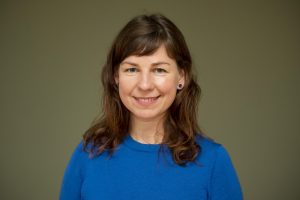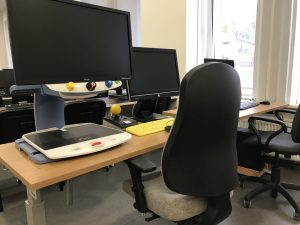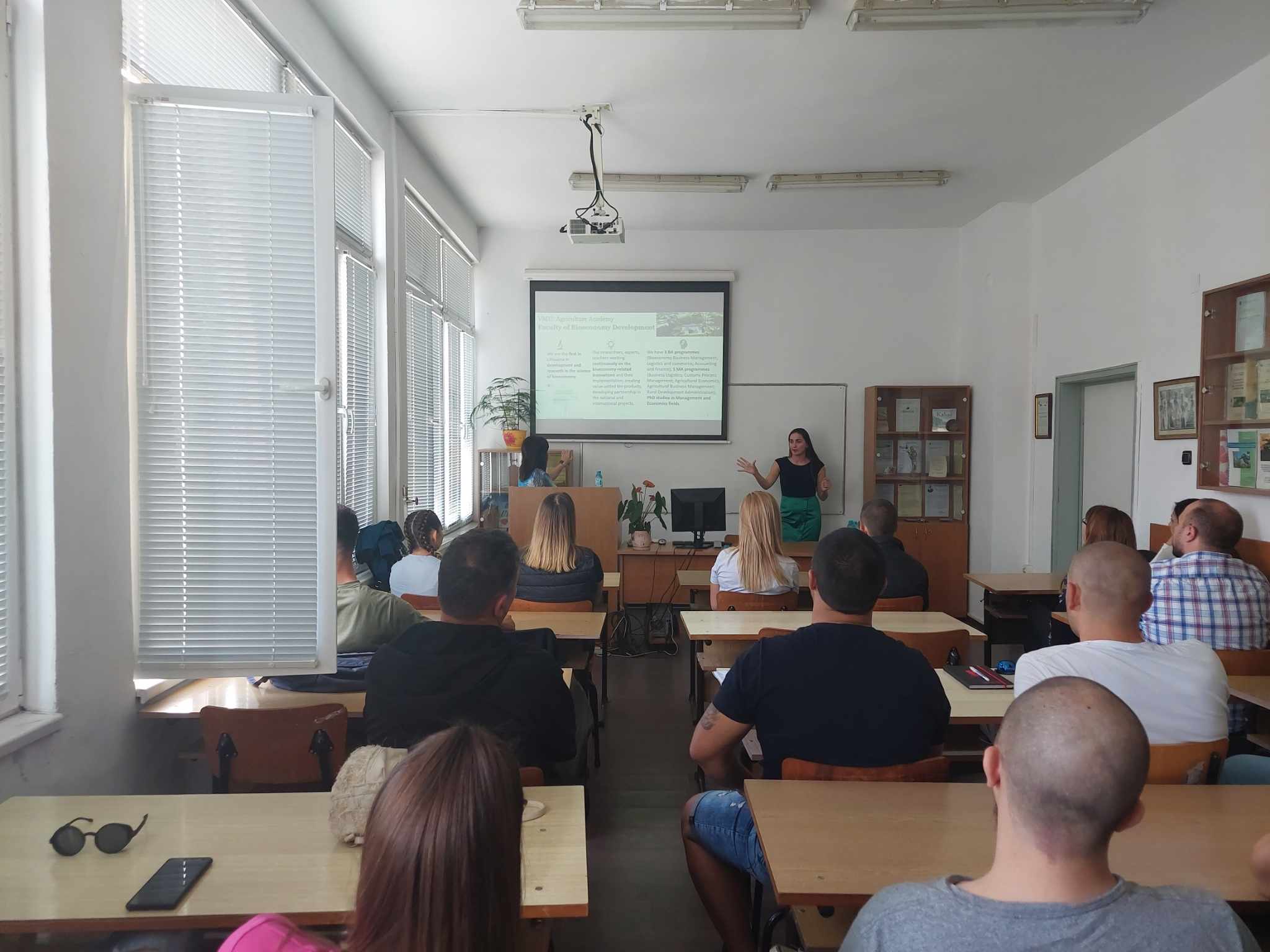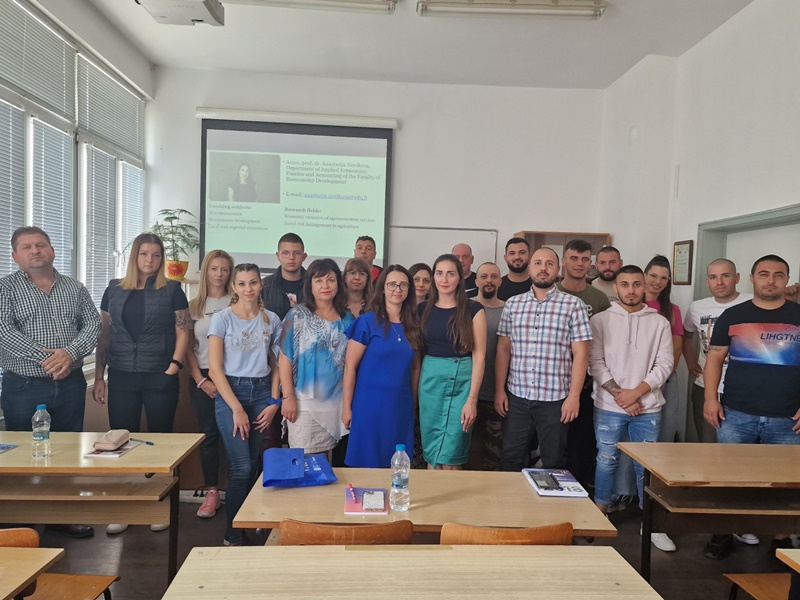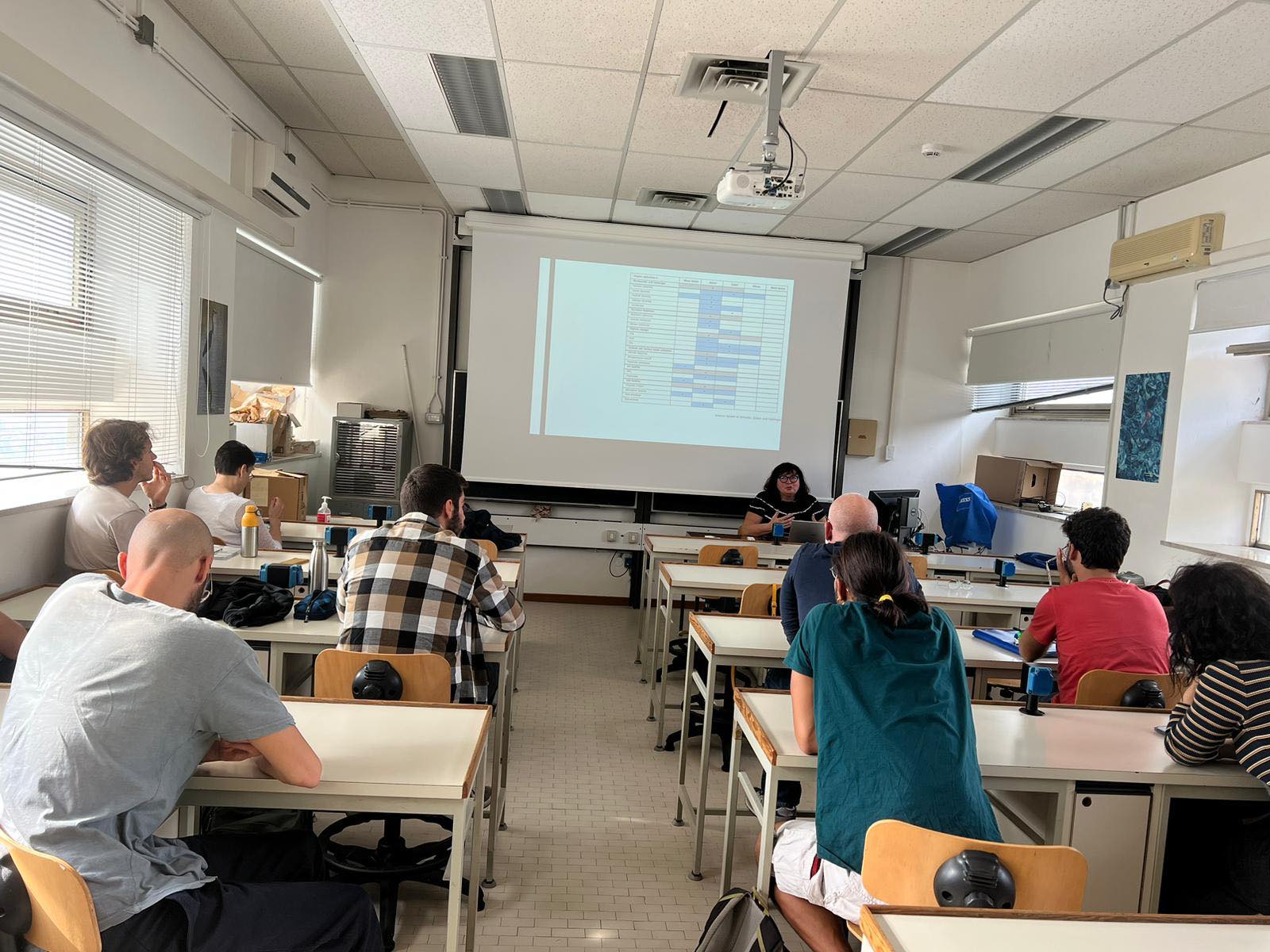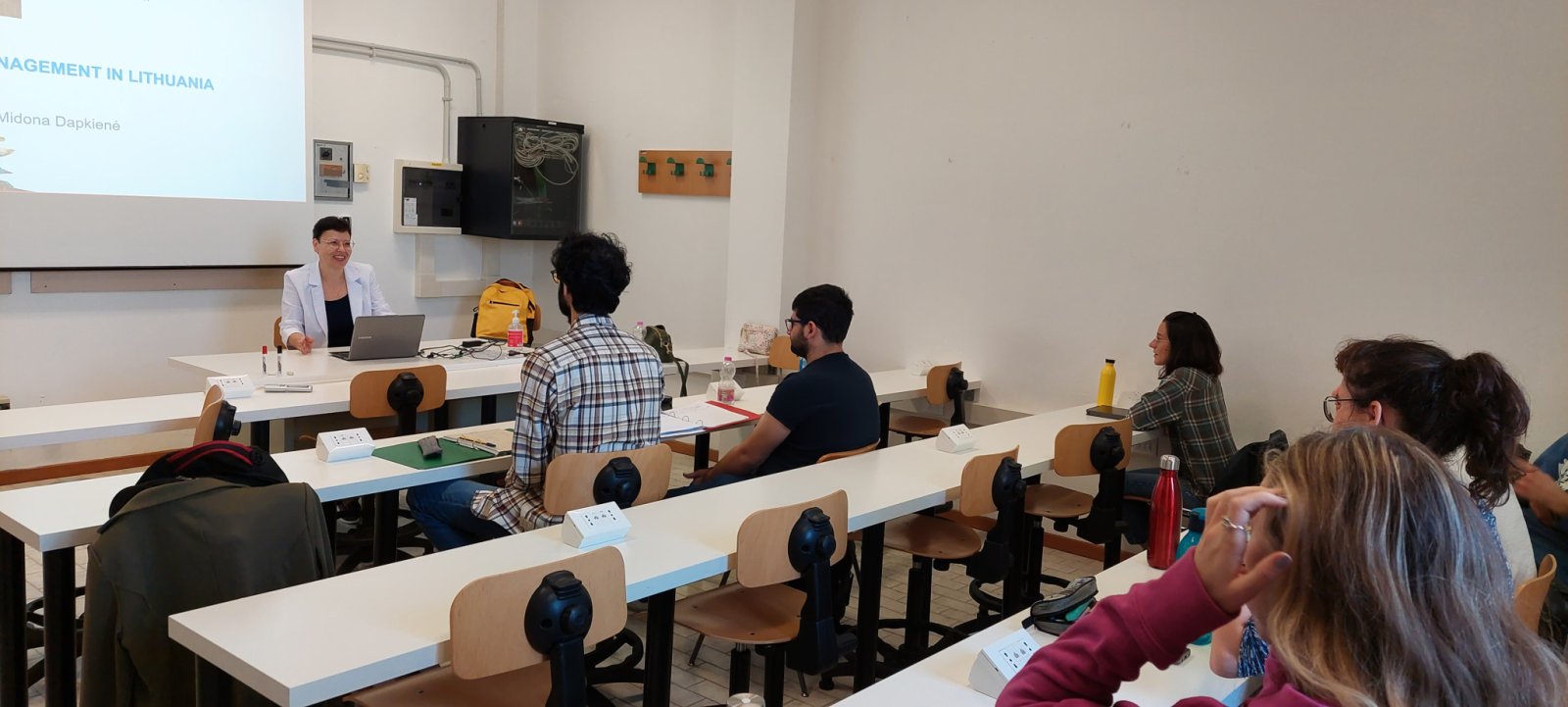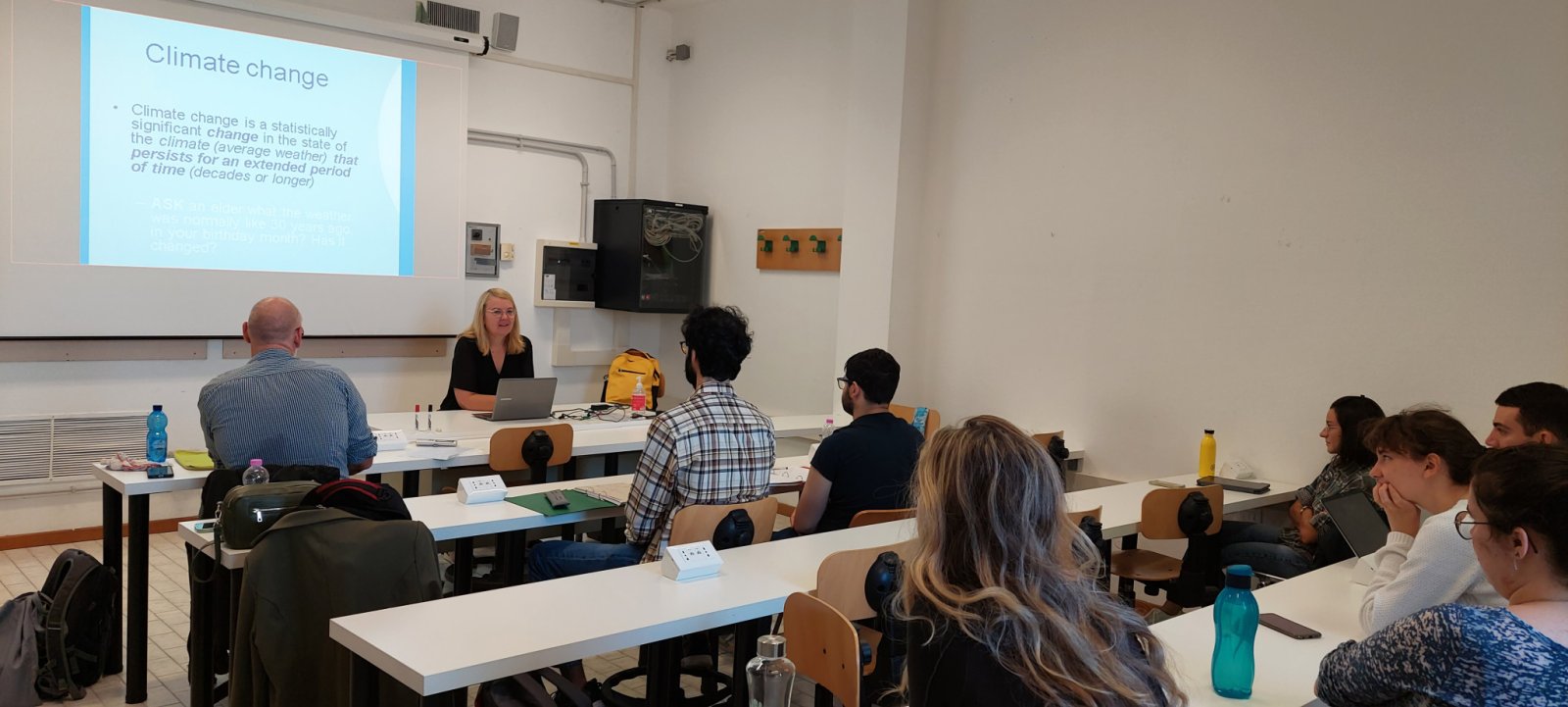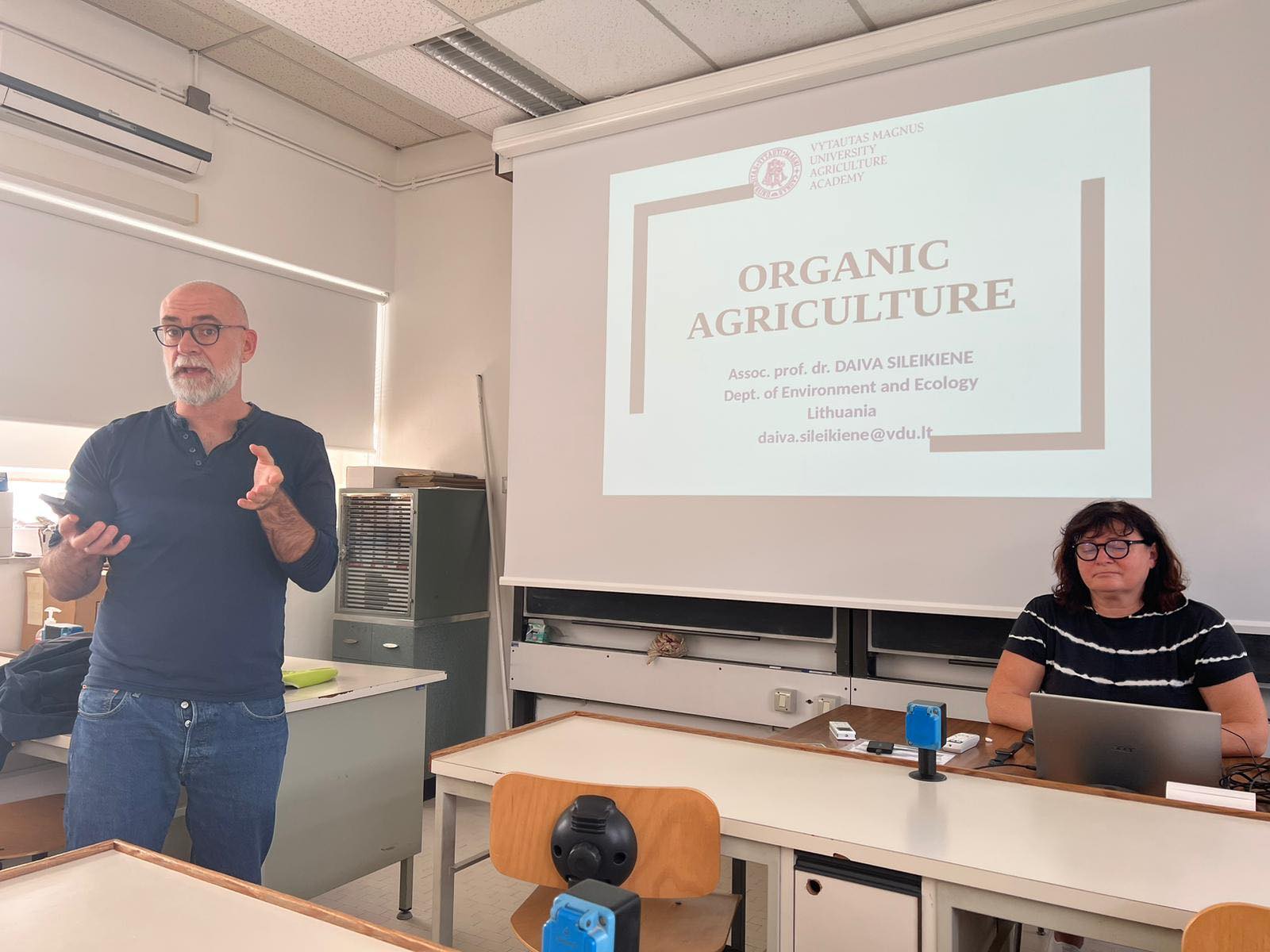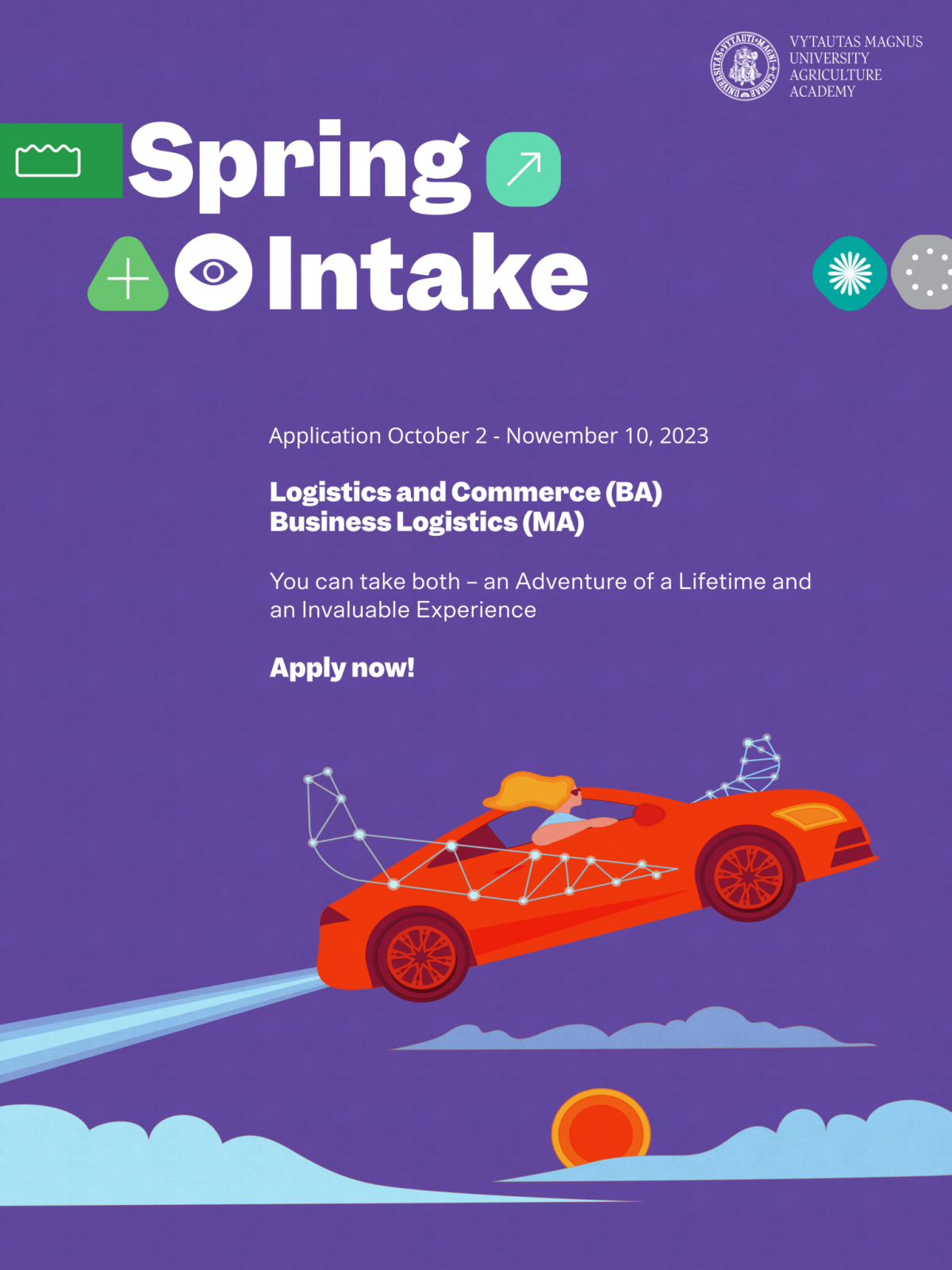Join VMU Mentors’ Community
Every year, students from all over the world come to Vytautas Magnus University (VMU). Some for just one semester, others for full-time studies, which provide an opportunity to stay in Lithuania for a longer period of time.
But no matter how long they stay in Lithuania, the first days are confusing and at the same time most memorable. To make it easier for incoming students to take the first steps in the country and not to get lost, Vytautas Magnus University International Cooperation Department invites VMU students to become mentors of international students and to lend them a helping hand!
Until November 30th, all interested students are invited to fill in a registration form.
VMU International Student Mentor is a local (Lithuanian or foreign full-time) student who is motivated, who has international and intercultural experience, and voluntarily helps the incoming foreign students.
You can find out more about the international student mentoring program here.
Apply now: Erasmus+ Traineeship Competition
A competition is open for Erasmus+ student and recent graduate traineeship grants. The application deadline is the 30th of November, 2023.
The placement period is from 2 to 6 months.
Selection
All VMU full-time degree students who have not used more than 10 months of their Erasmus mobility (study / traineeship) period are eligible for the Erasmus grant.
Selection documents
For student traineeship (traineeship during student’s year of studies)
- Filled-in application form „Outgoing-Application for Erasmus Student Traineeship (EU countries)“
- Confirmation by the company or organization (obligatory).
For recent graduate traineeship (application must be submitted during the last year of studies)
- Application form „Outgoing-Application for Erasmus Recent Graduate Traineeship (EU countries)“
- Confirmation by the company or organization (obligatory)
- Recommendation by a faculty member (obligatory)
The priority in the selection is given to
- students whom traineeship is an obligatory part of their study programme;
- students who have never been Erasmus traineeship students before.
Selection criteria
- student’s motivation;
- good knowledge of the language which will be used during the traineeship;
- student’s work, study, traineeship, participation in the international / academic projects, social activities experience in Lithuania and abroad;
- conformability between the chosen traineeship and student’s study programme;
- study results (first year MA students should attach transcript of records of their BA/MA degree to the application form).
The competition results will be sent to every participant via e-mail.
Competitions for Erasmus+ traineeships are taking place each month.
Navigating Challenges: VMU Alumni Discuss Resilience and Optimism
On the occasion of VMU Alumni Day, we invite graduates, students, and the VMU community to the discussion “Resilience and Optimism of VMU Alumni around the World”, which will take place on November 10.
Programme
Discussion “Resilience and Optimism of VMU Alumni around the World”
When: November 10, Friday, 15.00 – 17.00
Where: Putvinskio g.23, aud. 103, Kaunas
Format: in-person and online
Language: English
The link for online participation will be sent via email before the event.
This event is tailored for:
- Present foreign full-time and exchange students
- VMU international alumni
- VMU community
The discussion “Resilience and Optimism of VMU Alumni around the World” features the valuable perspectives of VMU international graduates and covers three main pillars:
- Learn or earn; both are best. If neither, quit. VMU alumni will share their experience of the job-searching process after graduation, their first workplace, learning and earning the money, challenges, firing/quitting/career change, and all ups and downs with the bottom line: Resilience and Optimism helped them to become who they are now.
- Entering the Lithuanian job market after graduation for foreign graduates. This sub-topic holds tips and insights for current students from VMU alumni who are currently living and working in Lithuania. Opportunities for current students.
- Academic career path insights. VMU alumni will share their career paths as PhD students. Their ups and downs, tips, and tricks for current students. Features of working on a dissertation. Funding. Resilience and Optimism as skills for the researchers. Challenges, such as the competitive nature of academia, potential job market fluctuations, work-life-research balance considerations, and the evolving landscape of academic institutions.
Meet our speakers – international VMU graduates:
Nargiz Hajiyeva Dr. (Azerbaijan) an alumna of Political Science and Diplomacy programme (2015 – 2017).
Topic: “A Journey of Scientific Empowerment: From Lithuania to the World”.
Current position: Ph.D., Political Scientist, Director of “Organization of Scientific Activities” Unit, Chair of Women Researchers Council (WRC), Academic lecturer on Political Leadership and Political Science, Azerbaijan State University of Economics (UNEC), Director of “Empirical Methods” Working Group, Swiss Political Science Association (SPSA), Switzerland.
Format of participation: online.
Hanna Rusinava (Belarus) is an alumna of the Political Science and Diplomacy Master’s programme (2018 – 2020).
Topic: “Union state agreement’s implications for Belarus”.
Current Position: journalist at Belsat TV, Belarusian independent television.
Format of participation: in-person.
Hüseyin Ograk (Turkey) is an alumnus of Marketing and International Commerce Master’s programme (2017 – 2019).
Topic: “Entering the Lithuanian job market after graduation for foreign graduates”.
Current position: Head of PPC position at Hostinger.
Format of participation: in-person.
Maka Berulava (Georgia) is an alumna of the International Politics and Development Bachelor’s programme (2019 – 2023).
Topic: “Academic career path insights”.
Current position: Master’s student at University College London (programme: Russian and Post-Soviet Politics).
Format of participation: in-person or online.
Moderator: Bohdan Polovynko, the 2nd year master’s student of Diplomacy and International relations. Former Trainee at the Education Training and Exercise division of the NATO Energy Security Centre of Excellence. Currently working on energy security-related research.
Check a recap of the Alumni Day 2022 discussion last year
See you at VMU Alumni Day!
VMU to hold Conference on Education in Turbulent Times
Vytautas Magnus University, The Lithuanian President Office and The Embassy of Ukraine in Lithuania cordially invites you to participate in the international conference “Education in Turbulent Times: towards European networking and integration”. The conference will be organized on 16 November 2023 in a hybrid way and devoted to the field of Education:
- New opportunities for higher education institutions in co-creating the European Education and Research Area
- New Higher Education Curriculum
- Innovative and Inclusive Pedagogies
The overall aim of the conference is to share and discuss opportunities for higher education institutions from Ukraine and the EU member states how European networks and programmes could support a smoother integration of Ukrainian higher education institutions into the European Education and Research Area.
Target groups: Higher education institutions from Ukraine, Lithuania and EU member states, policy makers, representatives of Diplomatic missions, Institutes of Culture and Youth organisations
Venue: The conference would take place in a hybrid mode. The onsite sessions will take place at VMU Education Academy, Ševčenkos str. 31.
Online link will be provided for participants upon registration
Working language: English
VMU commended by the Office of the Equal Opportunities Ombudsperson
In October 2023, Vytautas Magnus University (VMU) received the highest evaluation – three Equal Opportunity Wings – from the Office of the Equal Opportunities Ombudsperson for its achievements in mainstreaming equal opportunities at the University. This means that the University is committed to ensuring equal opportunities for all members of the community, aiming to enhance not only the quality and outcomes of research and studies but also the conditions of study and work.
“Being a part of the ‘Equal Opportunity Wings’ signifies that the University integrates and implements equal opportunities policies in its activities and is committed to following the principles of equal opportunities. The three wings symbolise that the organisation nurtures a culture that supports and actively promotes equal opportunities,” says Laura Lapinskė, Equal Opportunities Coordinator at VMU.
According to the specialist, this evaluation also indicates that the organisation meets all four criteria in the three-wing category, including priorities in the field of equal opportunities (e.g., reducing the pay gap, inclusion of employees with disabilities, etc.), an Equality Plan with measures to promote equal opportunities, a transparent and publicly accessible pay system, and the involvement of employees and managers in initiatives for equal opportunities implementation.
A team of University researchers and experts has also prepared a Gender Equality Plan (2021-2025), following the recommendations of the European Institute for Gender Equality (EIGE). This plan places a strong focus on gender balance, anti-discriminatory equal opportunities policies, reducing vertical and horizontal gender segregation, and integrating gender equality into studies and scientific research.
“In addition to gender equality, VMU also has disability policy formulation and implementation as one of its key priorities in the field of equal opportunities. In 2021, VMU Senate approved a disability policy document ‘University of Inclusive Opportunities’, which aims to ensure a culture of equality and non-discrimination at the University by making appropriate adjustments to study and working conditions and increasing accessibility to study/work. In 2015, the Lithuanian Association of People with Disabilities awarded VMU a certificate confirming the University’s accessible infrastructure and disability-friendly services,” says Lapinskė.
According to the VMU Equal Opportunities Coordinator, the University strives to create a safe and tolerant environment and an organisational culture based on trust and dignity. “To ensure this and to prevent discrimination, a Trust Line has been set up, which can be contacted in the event of experiencing or witnessing sexual harassment, psychological abuse, oppression, mobbing, other offensive behaviour, or discrimination. Each case is investigated by experts in the relevant field, who guarantee complete confidentiality,” says Lapinskė, describing the equal opportunities policy.
In order to educate the community, the University annually participates in public events on human rights, inclusion, and diversity. From 2019 to 2023, it participated in the Supporting and Implementing Plans for Gender Equality in Academia and Research (SPEAR) project that focused on implementing gender equality policies within the institution. Additionally, the University carries out inclusive international projects such as Be Hate Free, Unidiversity, Religion and Gender Equality, The Generations and Gender, and more.
In order to disseminate best practices and promote equal opportunities in other organisations, the equal opportunities activities implemented in VMU are presented on the website of the Office of the Equal Opportunities Ombudsperson. More information about the Equal Opportunity Wings and the participating organisations can be found here.
Exclusive Opportunity for Exchange Studies in non EU/EEA Countries
VMU students are invited to participate in a competition for exchange studies in spring semester, 2024 in non-EU/EEA countries with Erasmus+ scholarship.
Application deadline – November 3rd, 2023.
VMU offers one semester studies in one of the regions:
For more information please contact VMU ICD coordinators Eglė Daukilaitė (egle.daukilaite@vdu.lt) and Raimundas Rukuiža (raimundas.rukuiža@vdu.lt).
International seminar “Adaptation to Climate Change: Strategies and approaches for enhancing the quality of natural components via the use of natural processes in a long-term context”
We are inviting you to participate at the international seminar “Adaptation to Climate Change: Strategies and approaches for enhancing the quality of natural components via the use of natural processes in a long-term context”, which is dedicated to climate week. Seminar will be held on October 25 at Vytautas Magnus University Agriculture Academy (VMU AA) 503 auditorium (Studentų str. 11, Akademija, Kaunas distr.).
Presenters and topics:
- ARAÚJO AIMEIDA MARIA ADEIAIDE from Polytechnic Institute of Beja, Portugalija. “Removal of nitrogen compound and biomass valorization in constructed wetland”
- RIBEIRO CARLOS from Polytechnic Institute of Beja, Portugalija. “Characterization of the drying processes of several aromatic and medicinal plants produced in Portugal“
- LAIMA CESONIENE from Vytautas Magnus University Agriculture Academy, Lithuania. „Influence of climate change on the surface water status“
Date: 25 October 2023
Time: 11 a.m.
Place: VMU Agriculture Academy 503 auditorium (Studentų str. 11, Akademija, Kaunas distr.).
Erasmus Teaching Visit in Bulgaria
Associated professors dr. Erika Besusparienė and dr. Anastasija Novikova from the Faculty of Bioeconomic Development at Vytautas Magnus University Agriculture Academy (VMU AA) successfully completed a teaching visit in Bulgaria at the D.A. Tsenov Academy of Economics, located in Svishtov on the right bank of the Danube River from October 2 to 6, 2023. During this visit, they had the opportunity to collaborate with local colleagues, participate in lectures, and share their knowledge on the importance of bioeconomic development and international trade tax policy.
Assoc. prof. dr. A. Novikova had lectures in the Department of Agricultural Economics, actively sharing her expertise on the significance of bioeconomic development. Her lectures were not only for students but also for teachers of department. She discussed how the bioeconomy sector is becoming increasingly vital and its potential contribution to sustainable economic development. Assoc. prof. dr. A. Novikova engaged with students in discussions on ways to enhance Bulgaria’s agriculture sector for greater economic efficiency and environmental sustainability.
Assoc. prof. dr. E. Besusparienė, who lectured in the Department of Control and Analysis of Economic Activities, focused on international trade tax policy. Her lectures were tailored to help students understand how tax policies impact international trade. She provided a comprehensive overview of different tax measures and their application in international trade. Furthermore, she discussed current issues and recent changes in international trade tax policies, ensuring that students could easily grasp and absorb the information.
Both associated professors also had the opportunity to explore the Customs laboratory class at D.A. Tsenov Academy of Economics, where special software allows students to submit customs declarations in real-time and simulate real-world business scenarios. This practical experience was invaluable for students, offering them insights into customs procedures.
Additionally, during this teaching visit, detailed discussions took place regarding further collaboration opportunities between institutions that can benefit students, faculty, and researchers from both universities. These discussions laid the foundation for strengthening ties between the two academic institutions.
One of the significant opportunities discussed is student exchanges through the Erasmus program. This presents an excellent opportunity for students from VMU AA Faculty of Bioeconomic Development, particularly those studying Accounting and Finance, Agricultural Economics, or Customs Process Management. These exchanges enable students to experience a different country’s higher education system, gain exposure to different cultures, and acquire valuable international perspectives.
Faculty members can also take advantage of this Erasmus collaboration opportunity. They can exchange knowledge, experience, and teaching methods, contributing to the quality of higher education and fostering international academic cooperation. This allows professors to offer new perspectives and knowledge to their students.
The collaboration can also expand research opportunities for researchers and academics to participate in international projects, conduct scientific research, and contribute to the growth of the international scientific community.
This teaching visit to Bulgaria has opened a remarkable opportunity to strengthen relationships and develop cooperation between the two institutions. It promises to benefit students, faculty, and researchers from both universities. It serves as an excellent example of how international collaboration can promote education and scientific development, helping shape the future vision of higher education.
Visit of teachers of VMU AA to University of Trieste in Italy
The teachers of Vytautas Magnus University Agriculture Academy (VMY AA) assoc. prof. dr. Midona Dapkienė (Department of Water Engineering, Faculty of Engineering), prof. dr. Laima Česonienė and assoc. prof. dr. Daiva Šileikienė (Department of Environment and Ecology, Faculty of Forest Sciences and Ecology) visited University of Trieste according to Erasmus+ Mobility agreement on October 9th to 12th 2023.
The University of Trieste is a public research university in Trieste in the Friuli-Venezia Giulia region in northeast Italy. The University consists of 10 departments, has a wide and almost complete range of university courses and has about 15,000 students and 1,000 professors.
The teachers of VMU Agriculture Academy presented their University and gave the lectures for students of the master degree programmes in Global Change Ecology and Sustainability as well as in Management of Marine and Coastal Environmental Science. The students of the Environmental and Resource Economics (a master degree programme in Economy) and the PhD students in Circular Economy (a PhD programme in Economy) were invited to some lectures. The topics of lectures were as follows: influence of climate change on surface water status, agricultural activity impact on water quality, wastewater treatment and reuse for soil irrigation, water management in Lithuania, organic agriculture, environmental policy and Green Deal. Masters as well as PhD students also were given a possibility to connect to seminars online. All lectures were recorded and will be used in various training courses.
The representatives of VMU Agriculture Academy had an opportunity to meet the professors Giovanni Bacaro (a coordinator of the master degree programme), Chiara Manfrin, Stefano Martellos, Giuseppe Borruso and Matteo Carzedda and to discuss the possibilities of the joint projects as well as to familiarize with the study process and reasearch at the Department of Life Sciences.
VMU AA Spring Intake 2024. Apply Online Now!
Considering studying abroad? Would like to gain strong knowledge, solid skills, and invaluable international experience? Thinking about an unforgettable European student adventure studying in Lithuania, located in the center of Europe? Would like to live in Kaunas – a city of European Capital of Culture 2022?
Choosing studies at VMU Agriculture Academy You can take both – an Adventure of a Lifetime and an Invaluable Experience.
Spring Intake Application: October 2 – November 10, 2023.
Spring intake study programmes:
Logistics and Commerce (BA)
Business Logistics (MA)
Information about Application and Admission Procedures: Admission to Degree Studies | VDU
Information about Scholarships: Scholarships | VDU
APPLY HERE
Contact person: VMU Agriculture Academy International Coordinator Ekaterina Makrickiene ekaterina.makrickiene@vdu.lt +370 37 752 200
More Information about VMU Agriculture Academy study programmes: Study programmes for international students | VDU Žemės ūkio akademija
- About
- About Agri-Food BM programme
- Academic infrastructure units
- All events
- All news
- Aquaculture center
- Archives
- Biosystems Engineering
- Center of Animal husbandry selections, breeding values and dissemination
- Centre of Biosystems Engineering, Biomass Energetics and Water Engineering
- Circular Biobased Economy
- Climate change
- Contacts
- Contacts
- Events
- Events archive
- Faculties
- For business and society
- Innovative products
- International Cooperation
- International projects
- Joint Research Centre of Agriculture and Forestry
- Journal “Human and Nature Safety”
- Laboratory of Technology Safety
- Laboratory services
- Living Environment
- More labs
- News
- Project
- QUALS project description
- Research
- Research areas
- Scientific events
- Scope
- Sitemap
- Studies
- Study programmes
- Technology Transfer & Commercialization
- THE ROLE OF ORGANISATION IN THE PROJECT
- THE ROLE OF ORGANISATION IN THE PROJECT
- THE ROLE OF ORGANISATION IN THE PROJECT
- The Study Process
- Žemės ūkio žinių ir inovacijų sistemos klasteris





